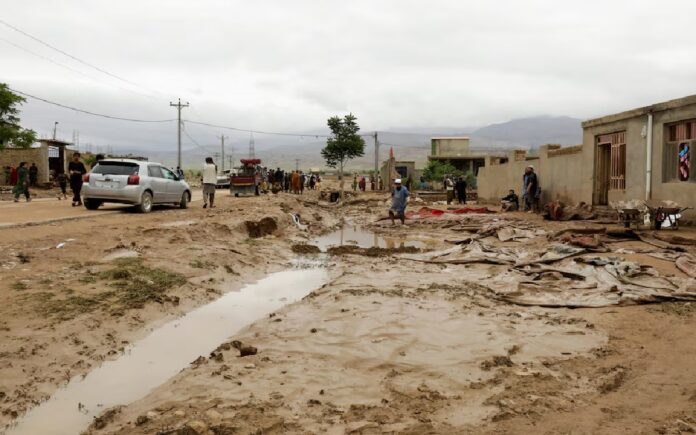Kabul: In the wake of heavy rainfall, flash floods have wreaked havoc on villages in northern Afghanistan, resulting in a tragic death toll of 315 and leaving over 1,600 individuals injured, authorities reported on Sunday. As affected villagers laid their loved ones to rest, humanitarian organizations sounded alarms over the expanding devastation.
The Taliban-run refugee ministry revealed that thousands of homes had been damaged, and livestock decimated by the deluge. Additionally, aid agencies expressed concerns over the impairment of vital infrastructure, including healthcare facilities and water supply networks, as streets lay submerged in mud.
In Baghlan province’s Nahrin district, mourners somberly carried their deceased, wrapped in shrouds, to their final resting places. Muhammad Yahqoob, who lost 13 family members, including children, lamented the dire situation, stating, “We have no food, no drinking water, no shelter, no blankets, nothing at all, floods have destroyed everything.” He described the plight of survivors, revealing, “Out of 42 houses, only two or three remain, it has destroyed the entire valley.”
Also Read | Deadly Floods and Landslides Strike West Sumatra, Indonesia
In a plea for aid, Taliban’s economy minister, Din Mohammad Hanif, urged the United Nations, humanitarian agencies, and private businesses to extend support to the flood-affected populace. Arshad Malik, Afghanistan director for Save the Children, painted a grim picture, stating, “Lives and livelihoods have been washed away.” He highlighted the plight of the estimated 310,000 children residing in the hardest-hit districts, emphasizing, “Children have lost everything.”
The refugee ministry’s latest tally of casualties was obtained from its Baghlan provincial office, as mentioned in a post on X. Initial figures from the interior ministry following Friday’s floods had pegged the death toll at 153, with warnings of potential increases.
Afghanistan, already prone to natural disasters, is deemed one of the countries most vulnerable to climate change by the United Nations. Compounded by a shortfall in aid after the Taliban’s takeover in 2021, the nation grapples with the aftermath of foreign troop withdrawal, as development aid crucial to government finances dwindles.



